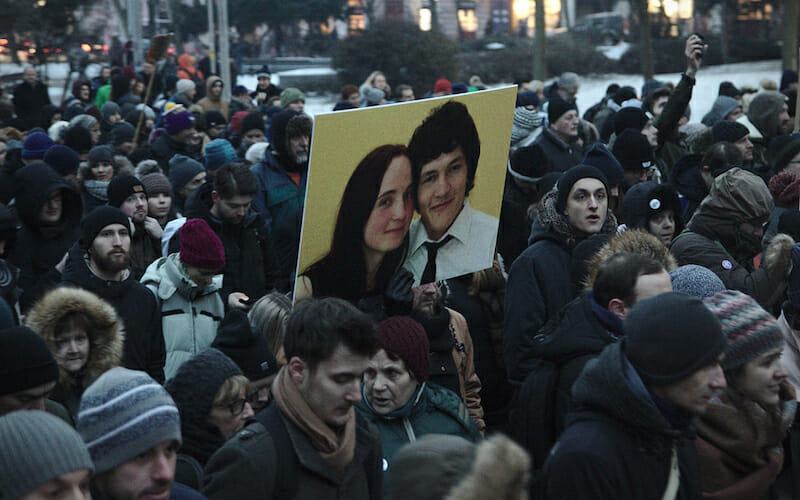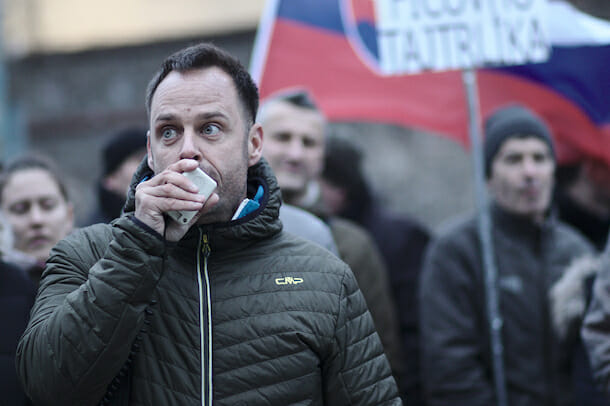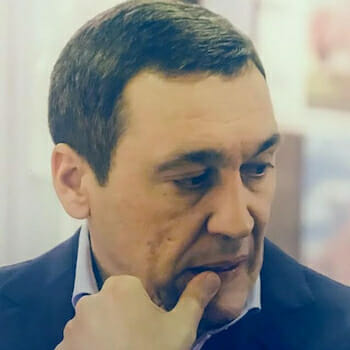
Let’s Learn from Slovakia: Don’t Let Leaders Demonize Journalists
Few of the hundreds of thousands who took to the streets of Slovakia to mourn the death in February of the young journalist Ján Kuciak will have read his work. His was not a household name and his stories, painstakingly detailed exposés about tax evasion and property scams, were not aimed at a mass market readership.
The mass demonstrations, which eventually forced a prime minister from office, were a spontaneous expression of horror and outrage that the perpetrators could feel they could get away with such an appalling crime. It is to Slovakia’s great credit that there was such a capacity for public outrage and that it had a political effect. This was the nation’s only media assassination in its post-Communist history. As someone from a country where media murders have been so common that the capacity for outrage has all but disappeared, I hope this will be Slovakia’s last.
This is a point that needs to be made. There are nations where the murder of journalists is so routine that there is barely any reaction at all. Russia is one of these. Ukraine, where I was born, is another. Mexico, Iraq, Syria, Yemen, Somalia — all top the horrifying league tables of places where journalists can be murdered with impunity. These are all places where the rule of law is so fragile or so compromised by a ruling elite that a politically motivated murder is essentially a low-risk crime, barely remarked upon by ordinary citizens.
Take the case of Pavel Sheremet, a former TV journalist in Belarus — highly critical of the leaders of Belarus, Russia and, ultimately, of Ukraine, where he moved in 2012. He died from a car bomb explosion in Kyiv in July 2016. A well-researched documentary by journalists at the Organized Crime and Corruption Reporting Project (OCCRP) pointed to probable involvement of the Ukrainian secret services in his murder. There have been no arrests.
Similarly, there have been few arrests in the many murder cases in Russia involving journalists. Occasionally, as in the case of Anna Politkovskaya, there are arrests and even convictions, but the hitmen are usually professionals and they know better than to identify their clients.
Sadly, media murders have become a tragic kind of litmus test of democracy and the rule of law. Where the population is so numbed by other forms of lawlessness that there is little reaction to the death of a reporter or editor, we can be reasonably certain that there will be more assassinations in the future.

That is why the public reaction to the deaths of Kuciak and his fiancee was important. But finding the culprits and convicting their paymasters is even more important. Impunity inevitably leads to further mayhem. Encouragingly, crowds of protesters continue to gather in Bratislava. They must persist until justice is done.
In the meantime, there are lessons to be learned even in the “rule of law” nations, where journalist murders are, thankfully, a rarity. OCCRP, which investigated the death of Sheremet in Ukraine, has also reviewed Kuciak’s killing. The story he was working on at the time of his death was a collaboration with OCCRP.
Drew Sullivan, OCCRP’s editor, has asked a key question: How did the perpetrators know what Kuciak was working on? As Sullivan writes: “As we’ve learned, Jan had filed requests for information to several Slovak public agencies — a standard journalistic practice. The authorities deny that they had tipped off the subjects of his research about his requests. But they are the only people who knew about the investigation besides myself and four or five other people. We even encrypted our email conversations.”
OCCRP wants legislation passed to protect the identities of journalists or others acting as public watchdogs. “There are no specific laws in place that protect requestors’ identities or their inquiries, and no laws that sanction government employees who release their information,” Sullivan says. “Had this dangerous situation been fixed, Jan might still be alive today.”
This makes considerable sense. But the most important safety net has to be public support for journalism’s role in a free society. Robert Fico, the now-resigned prime minister of Slovakia, demonized the media, calling journalists “whores.” That’s a brand of populism that can be found in many of the places where journalism is a hazardous profession, including Russia. Citizens need to be alert to this. They could learn from Slovakians.

